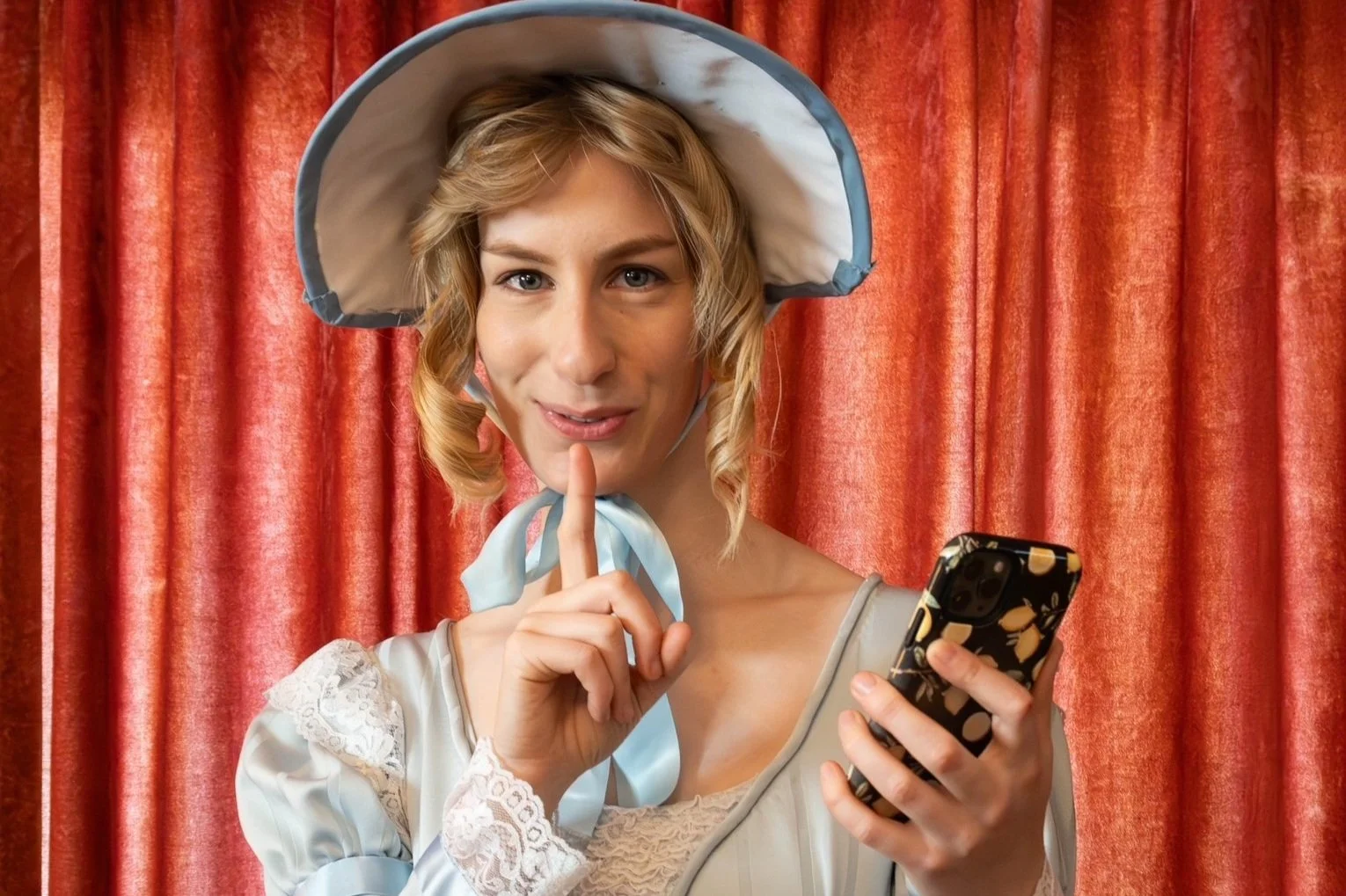Theatre review: In Paddle Song, actor Cheri Maracle exudes Pauline Johnson's ferocious talent and pride
The one-woman show tells the life story of the acclaimed Mohawk poet
Cheri Maracle as Pauline Johnson in Paddle Song.
Paddle Song, written by Dinah Christie with Tom Hill starring Cheri Maracle, is at the Firehall Arts Centre until November 21.
PAULINE JOHNSON’S “The Cattle Thief” is a fierce poem about a woman’s response to the killing of her father, a Cree chief, by the bullets of English settlers. Having spread her blanket over his corpse, she admonishes the men: “You have cursed, and called him a Cattle Thief, though you robbed him first of bread—/Robbed him and robbed my people—look there, at that shrunken face/Starved with a hollow hunger, we owe to you and your race!/What have you left to us of land, what have you left of game/What have you brought but evil, and curses since you came?/How have you paid us for our game? how paid us for our land?/By a book, to save our souls from the sins you brought in your other hand!”
Johnson, the Mohawk poet (and “Indian princess”) who also went by the name Tekahionwake, wrote the poem in 1895 and went on to perform it not only on stages in Canada, the U.S., and the UK but also in front of religious rural Americans as part of a travelling series called the Chautauqua circuit. Just picture it: there she was, likely the only Indigenous person they had ever seen, let alone a Native woman in a fringed buckskin dress adorned with rabbit pelts and a Huron scalp belonging to her grandfather, addressing white settlers with highly charged words, a woman of ferocious intellect, talent, fight, spite, and pride.
In actor Cheri Maracle’s capable hands, we don’t have to conjure in our minds what it might have been like to witness Johnson perform; Maracle portrays her with purity, clarity, and zeal.
The one-woman show is as engaging as it is enlightening. Maracle addresses audiences directly, taking us on a journey through Johnson’s remarkable life. We meet her as a precocious school-aged girl who’s keen to perform at her parents’ dinner parties; her mom was a British immigrant (Maracle nails the accent) and her father was a respected hereditary Mohawk chief; their guests included people like Alexander Graham Bell and Lord Dufferin, Governor General of Canada from 1872 to 1878. We learn about her love of canoeing, having grown up on Six Nations of the Grand River.
Maracle keenly conveys Johnson’s vulnerability, courage, and confidence as her career starts to take off. With heart, she exudes the hope and hurt Johnson experienced, whether buoyed by glowing reviews by even the toughest critics or heartbroken by the humiliation her one love imposed on her.
Johnson’s Indigenous name translates as “double wampum”, meaning double life, owing to her mixed ancestry. This duality is reflected in the set: on one side of the stage, there’s a chaise longue; on the other, a wooden bench that acts as a canoe. Just as Johnson did during her shows, Maracle appears in a shimmery ball gown for part of the show and in a “mix and match” buckskin dress for the rest.
Johnson’s words are just as potent and resonant today as when she first wrote them, perhaps even more so as Canada finally begins to face its colonial atrocities and ongoing injustices toward Indigenous people. Schools should have Paddle Song as part of the curriculum.
Maracle’s performance is emotional without being melodramatic, gentle but assertive. Hers is a powerful and beautiful portrayal of an extraordinary individual whose story needs to be told anew—and shared with this kind of care.














